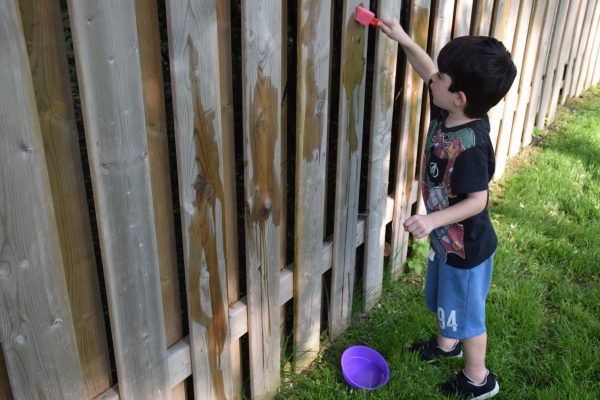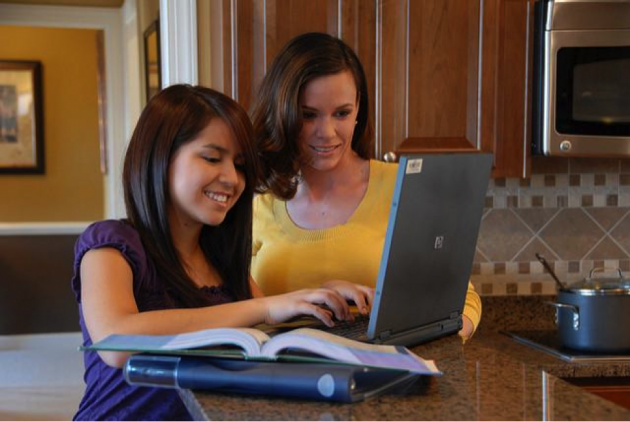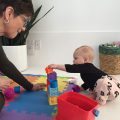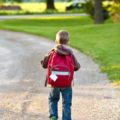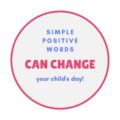Summer is right around the corner which means the school year is coming to an end. While children and parents alike maybe focusing on their summer plans, this transition provides a great opportunity to reflect with your child and plan for next year. With a little planning, there are some end of year tips to help maximize your child’s learning for September.
Create a journal
Journaling or scrapbooking with your child is a great activity to engage in self-reflection and identify some of their great accomplishments. Ask your child to select a few of their favourite memories and biggest accomplishments from this past year. This could be a test they did very well on, a project they enjoyed doing, social or emotional growth, or even an achievement in a hobby.

If a scrapbook or journal seems too formal, even having this conversation over the dinner table would be beneficial. It’s important for children to become self-reflective, and to recognize their growth and achievement. This helps to build their confidence, boost their self-esteem, and encourages them to set further goals. It also validates their efforts and it serves as a nice reminder the next time they begin a challenging task; you can recall their past successes as a means to remind them of their great capabilities.
Don’t just focus on grades
Kids don’t always get good grades in every area of their report cards, or great levels in their learning skills. This can affect their self-confidence. Rather than dwelling on marks or marginal changes in learning skills, focus on personal growth and what your child learned this year. Each child’s growth and personal gains are not necessarily evident by looking solely at grades. Life skills and personal growth are of great importance, sometimes more so than grades. For example, persevering through challenging tasks like multiplication and division provides confidence for perseverance in other tasks going forward. What about the confidence to present in front of the class which had previously not been attempted? These things are of great importance, and success for each child is as different as each individual child is.
How to use a report card
Report card data should be viewed with a growth mindset and can be used in goal setting for next school year. The final report card is a way to guide the conversation, focus on your child’s learning skills and work habits. These skills are so important for success in all areas of the curriculum. By recording goals for the next school year in June, you can easily review them in August before heading back to school and set your child up for success by ensuring they have any tools or strategies needed to reach their goals.

All about me
Learning occurs when children have a better understanding of their learning needs. Have your child write a letter to their new teacher or fill out an “All about me” package that focuses on talents/strengths, likes/dislikes, and how they learn best. A simple self-advocacy card is quick way for educators to learn about your child and their needs. Place it in a box or an envelope and put it away until September. Check out this link for a free download https://www.understood.org/en/school-learning/partnering-with-childs-school/working-with-childs-teacher/download-3×3-card-to-help-teachers-get-to-know-your-child
Over the Summer
Skills are like muscles, it’s good to let them rest for a short while, but if you break for too long you could loose some of the progress you’ve made in developing and strengthening them. This is what could happen to students’ skills over the summer. In order to maintain the development they made throughout the year, have your child practice their skills in a leisurely and fun way over the summer. In practical terms this could mean encouraging them to read novels for pleasure and engaging in meaningful book talk discussions with them.

Make it feel fun
Just because summer is here, doesn’t mean your child’s learning stops. This is a great time to encourage your child to practice their coding skills on a website platform. Does your child enjoy music? Maybe pursue an interest in a musical instrument. It’s important to make it feel organic and fun, so that they develop an intrinsic motivation to complete these tasks. Any activities that are challenging and require sustained focus will help them exercise their brain muscles and stay in a good routine. Making it fun will ensure a smooth transition back into school in September.
By actively involving your children and planning for next year, this is the perfect time to strengthen your child’s academic skills for September.
A special thank you to Michelle Lockett (Junior/Intermediate Teacher), Brittany Lew (Junior/Intermediate Teacher) and Robin Bacher (Educational Consultant) for their contributions to this article.


